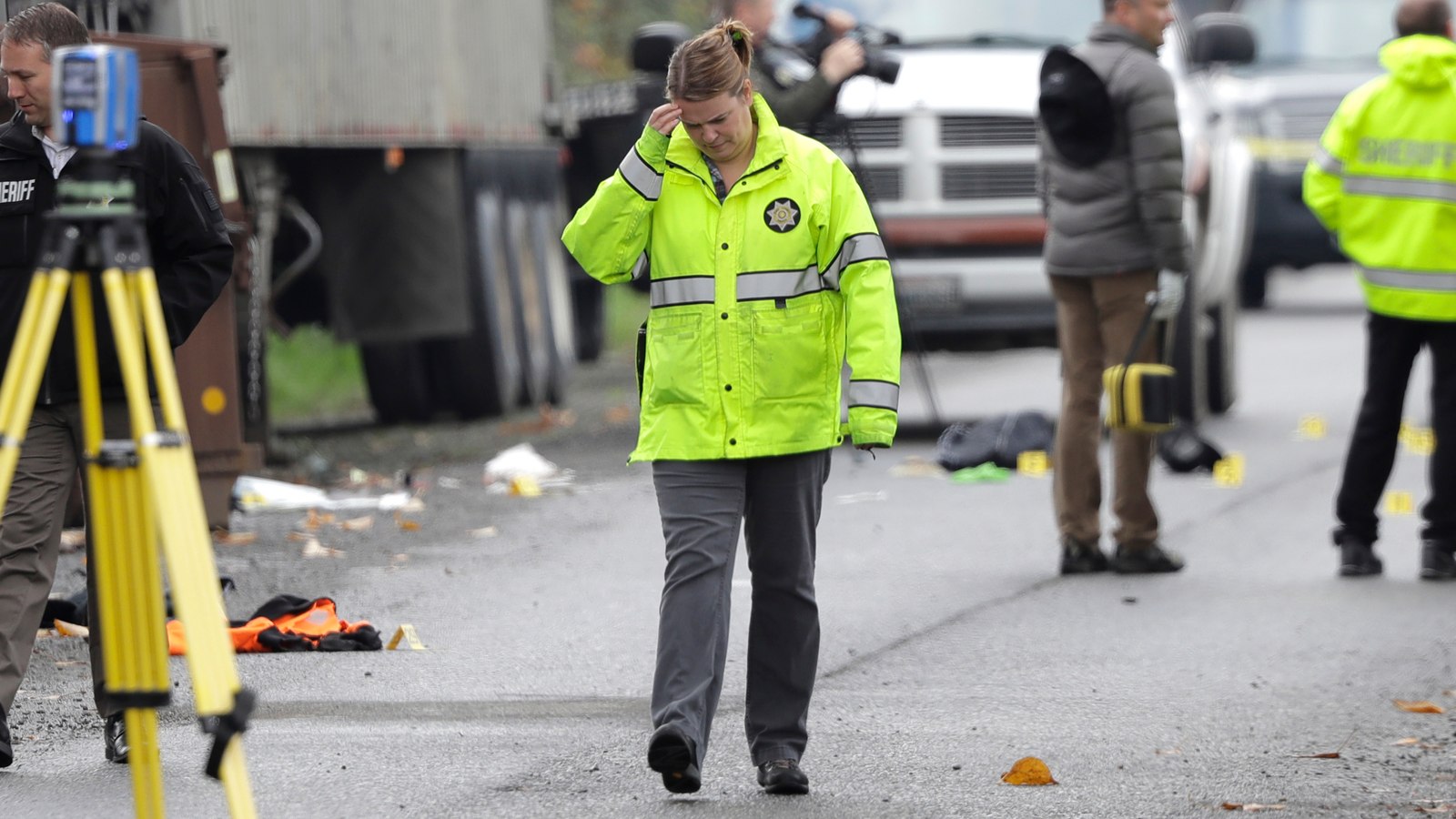
Crime Scene Investigators, often referred to as CSI’s, play a crucial role in solving crimes and bringing justice to the victims. These dedicated professionals are responsible for collecting and analyzing evidence found at crime scenes, piecing together the puzzle that leads to the identification and apprehension of criminals. While popular crime dramas have glamorized the work of crime scene investigators, there are many astounding facts about this profession that are often overlooked. From their extensive training to their use of cutting-edge technology, crime scene investigators are a vital part of the criminal justice system. In this article, we will delve into 16 astounding facts about crime scene investigators, shedding light on the fascinating world of forensic science and the individuals who work tirelessly to solve crimes.
Key Takeaways:
- Crime scene investigators are essential in solving crimes by gathering and preserving evidence, using advanced technology, and working under high-pressure environments.
- Their attention to detail, extensive training, and dedication to upholding justice make crime scene investigators indispensable in the criminal justice system.
Crime scene investigators play a crucial role in solving crimes.
As professionals trained in forensic science, crime scene investigators gather and analyze evidence to help unravel the mysteries surrounding criminal acts.
They are skilled in collecting and preserving evidence.
Crime scene investigators are experts in meticulously collecting, documenting, and preserving various types of evidence, such as fingerprints, DNA samples, and trace materials, ensuring their integrity for further examination.
They use advanced technology in their investigations.
Crime scene investigators utilize cutting-edge tools and technology, including forensic cameras, chemical reagents, and digital imaging software, to enhance their forensic analysis and uncover vital clues.
Crime scene investigators often work in high-pressure environments.
From murder scenes to burglaries, crime scene investigators must perform their duties efficiently and accurately, often under stressful circumstances, to ensure the accuracy of their findings.
They have a comprehensive understanding of the legal system.
Crime scene investigators are well-versed in criminal law and procedures, knowing how to document evidence in a manner that upholds legal standards, ensuring its admissibility in court.
They collaborate closely with other professionals in the criminal justice system.
Crime scene investigators work in conjunction with law enforcement officers, forensic scientists, and prosecutors to build a solid case against the perpetrator, creating a seamless flow of information and evidence.
Attention to detail is a critical skill for crime scene investigators.
With crime scenes often containing vast amounts of subtle clues, crime scene investigators need exceptional attention to detail to identify and document even the smallest piece of evidence.
They must possess strong analytical and problem-solving abilities.
Crime scene investigators must approach each crime scene with a logical and analytical mindset, piecing together evidence to reconstruct the chain of events and identify the individuals involved.
They undergo extensive training in forensic techniques.
Crime scene investigators typically receive specialized training in various areas of forensic science, including bloodstain pattern analysis, ballistics, and forensic photography, to enhance their investigative skills.
They have knowledge of different scientific disciplines.
Crime scene investigators have a basic understanding of biology, chemistry, physics, and other scientific disciplines, enabling them to apply their knowledge to interpret and analyze evidence effectively.
They must maintain a strict chain of custody for evidence.
Crime scene investigators meticulously document the handling of evidence, ensuring that it is properly secured and tracked from the crime scene to the lab and throughout the legal process.
They are trained to testify in court.
Crime scene investigators may be called upon to provide expert testimony in court, presenting their findings, and explaining the significance of the evidence to the judge and jury.
They occasionally work long and irregular hours.
Crime scenes can occur at any time, requiring investigators to be available for on-call duty and work flexible schedules to respond promptly and effectively.
They must stay updated on the latest advancements in forensic science.
Crime scene investigators engage in continuous professional development to keep abreast of advancements in forensic techniques, equipment, and methodologies to improve their investigative abilities.
They face potential dangers while working in the field.
Crime scene investigators may encounter hazardous situations, such as biohazards, dangerous chemicals, or even violent crime scenes, necessitating their adherence to strict safety protocols.
Their work is essential for delivering justice.
Crime scene investigators play a pivotal role in the criminal justice system, helping to gather and analyze evidence that can lead to the identification and conviction of perpetrators, bringing closure to victims and their families.
Conclusion
In conclusion, crime scene investigators play a crucial role in solving crimes and ensuring justice is served. They are highly trained professionals who use their skills and expertise to analyze evidence, collect data, and reconstruct the sequence of events at a crime scene. From examining fingerprints and DNA samples to documenting and photographing the scene, their work is meticulous and thorough.
Crime scene investigators work closely with law enforcement agencies and forensic experts to gather evidence that can be used in court trials. Their dedication and attention to detail help uncover the truth and bring perpetrators to justice. It is a challenging and demanding profession that requires strong analytical skills, problem-solving abilities, and a commitment to serving justice.
Overall, crime scene investigators are unsung heroes who work tirelessly behind the scenes to ensure that justice is served and society remains safe. Their expertise and dedication contribute significantly to the field of criminal justice and provide closure to victims and their families.
FAQs
Q: What qualifications do you need to become a crime scene investigator?
A: To become a crime scene investigator, you typically need a bachelor’s degree in forensic science, criminal justice, or a related field. Some agencies may require additional certification or specialized training.
Q: What skills are essential for a crime scene investigator?
A: Crime scene investigators need strong analytical skills, attention to detail, critical thinking abilities, and excellent problem-solving capabilities. They must also have good communication and documentation skills.
Q: What is the work environment like for crime scene investigators?
A: Crime scene investigators work in a variety of environments, including crime scenes, laboratories, and offices. They may encounter unpleasant or challenging conditions, such as working in extreme weather or dealing with highly emotional situations.
Q: How long does it take to process a crime scene?
A: The time it takes to process a crime scene can vary depending on the complexity of the case. It can range from a few hours to several days, or even weeks for more complicated investigations.
Q: What is the role of a crime scene investigator in a criminal investigation?
A: Crime scene investigators collect, preserve, and analyze physical evidence found at crime scenes. They document the scene, take photographs, and collect samples for further analysis. They also collaborate with other professionals, such as forensic scientists and detectives, to help solve crimes.
Intrigued by crime scene investigators' astounding facts? Satisfy your curiosity with surprising revelations about Gary Dourdan, an accomplished actor known for his captivating performances. Prepare to be mindblown by Charlotte Lewis's incredible life story, filled with unexpected twists and turns. Marg Helgenberger's fascinating career and personal life will leave you craving more information about this talented actress.
Was this page helpful?
Our commitment to delivering trustworthy and engaging content is at the heart of what we do. Each fact on our site is contributed by real users like you, bringing a wealth of diverse insights and information. To ensure the highest standards of accuracy and reliability, our dedicated editors meticulously review each submission. This process guarantees that the facts we share are not only fascinating but also credible. Trust in our commitment to quality and authenticity as you explore and learn with us.


